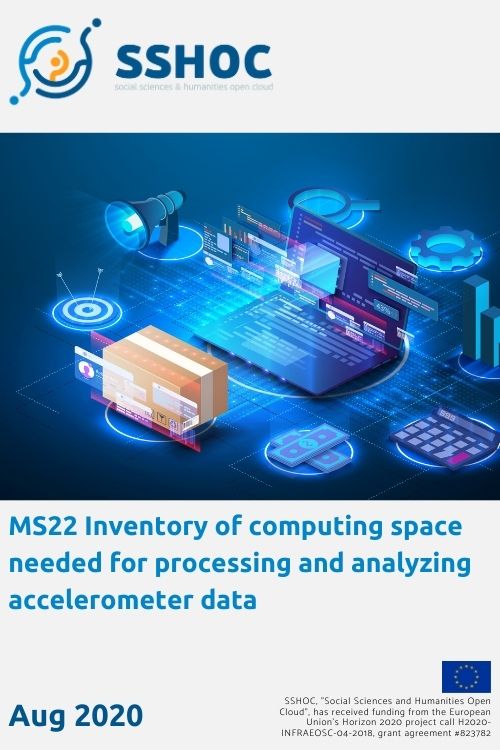
- Social Sciences & Humanities Open Cloud
MS22 Inventory of computing space needed for processing and analysing accelerometer data

Submission date:
16 April 2021
This report documents the achievement of the Milestone 22 of the SSHOC project, which was to evaluate the feasibility and technical requirements to handle and perform analysis on accelerometer data in large studies. The two main challenges on data transfer and data preparation were identified and successfully addressed. Though the processing takes a significant amount of time and the implementation is cumbersome, it is feasible to do the data processing with standard office computers.
Measures of physical activity based on sensor data are more reliable and comparable than self-reported assessments of activity (cf. Gupta et al; Prince et al). With devices becoming affordable and analysing techniques more sophisticated, the use of accelerometers in large surveys is a valuable method to collect data. Accelerometer data provide information on physical activity, which is highly relevant for health research. To track movements, the acceleration is recorded by the device multiple times per second. This results in a huge amount of raw sensor data. The detailed information is useful for analysis; however, it comes along with high requirements concerning storage space and computing power. The aim of this milestone was to evaluate the feasibility and technical requirements to handle and perform analysis on accelerometer data in large studies such as the Survey of Health, Ageing and Retirement in Europe (SHARE).
Publication type:
Milestone
